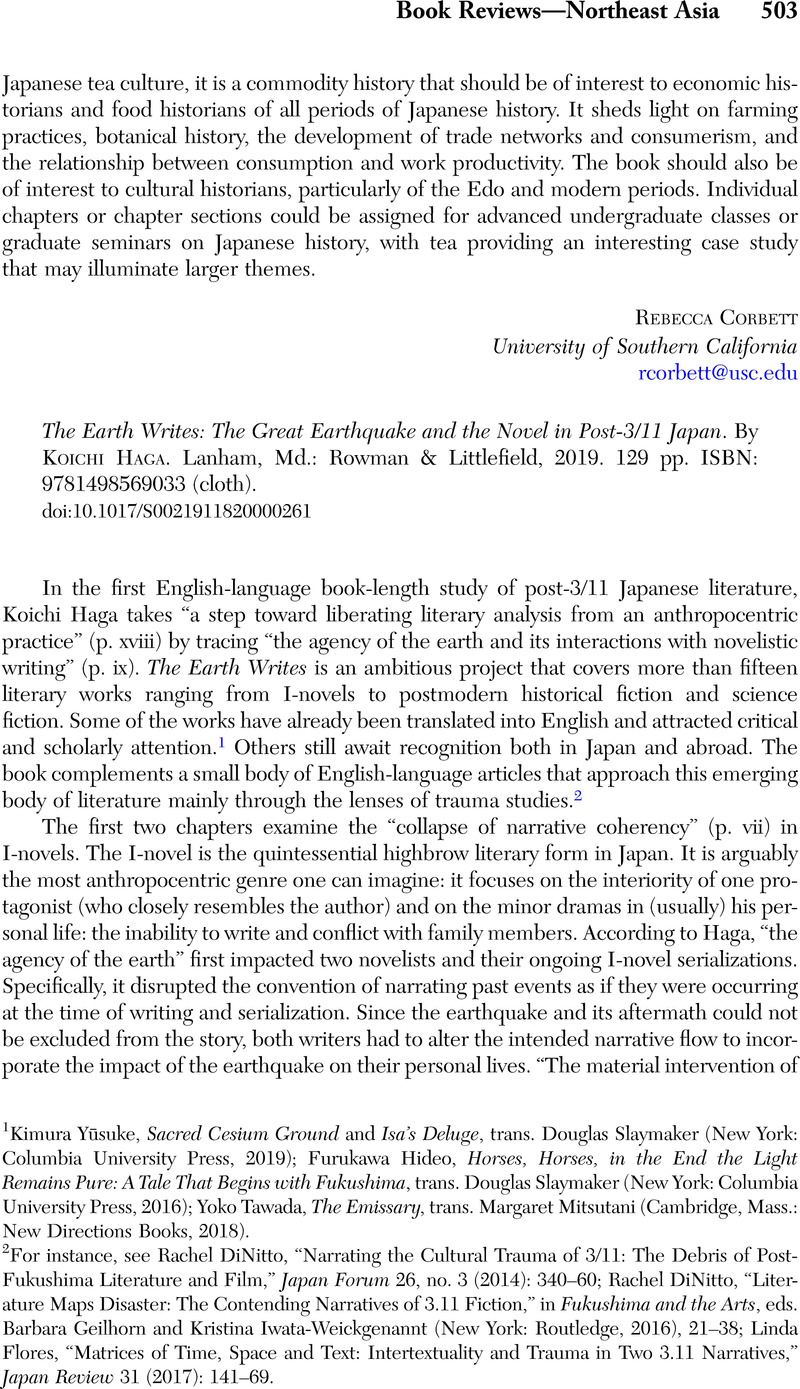No CrossRef data available.
Article contents
The Earth Writes: The Great Earthquake and the Novel in Post-3/11 Japan. By Koichi Haga. Lanham, Md.: Rowman & Littlefield, 2019. 129 pp. ISBN: 9781498569033 (cloth).
Review products
Published online by Cambridge University Press: 16 June 2020
Abstract

- Type
- Book Reviews—Northeast Asia
- Information
- Copyright
- Copyright © The Association for Asian Studies, Inc. 2020
References
1 Kimura Yūsuke, Sacred Cesium Ground and Isa's Deluge, trans. Douglas Slaymaker (New York: Columbia University Press, 2019); Furukawa Hideo, Horses, Horses, in the End the Light Remains Pure: A Tale That Begins with Fukushima, trans. Douglas Slaymaker (New York: Columbia University Press, 2016); Yoko Tawada, The Emissary, trans. Margaret Mitsutani (Cambridge, Mass.: New Directions Books, 2018).
2 For instance, see DiNitto, Rachel, “Narrating the Cultural Trauma of 3/11: The Debris of Post-Fukushima Literature and Film,” Japan Forum 26, no. 3 (2014): 340–60CrossRefGoogle Scholar; Rachel DiNitto, “Literature Maps Disaster: The Contending Narratives of 3.11 Fiction,” in Fukushima and the Arts, eds. Barbara Geilhorn and Kristina Iwata-Weickgenannt (New York: Routledge, 2016), 21–38; Linda Flores, “Matrices of Time, Space and Text: Intertextuality and Trauma in Two 3.11 Narratives,” Japan Review 31 (2017): 141–69.
3 This is an ecocritical concept that Haga borrows from Rob Nixon's Slow Violence and the Environmentalism of the Poor (Cambridge, Mass.: Harvard University Press, 2011).


